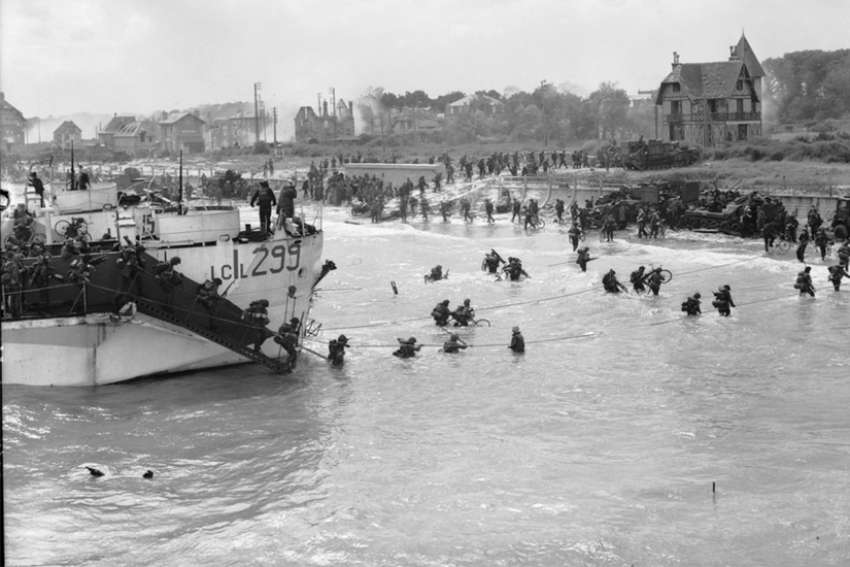Once they are physically absent, our Great Age of Pervasive Amnesia will have all the grounds needed to forget entirely not only what they did, but that they even existed.
So it becomes critical that the living war heroes be given a last gasp of gratitude before we lose them forever. But there is something more at stake than just saying thank-you for the freedoms and prosperity they won back for us. Cached in the dying huzzahs of success lies the final chance to acknowledge failure. Not theirs. Ours.
We have, to borrow from a celebrated First World War poem, broken faith with those Second World War warriors who have already died. And there is no sign the spiritual wreckage will cease in the wake of the passing of the few who remain. The very least we can do is call ourselves to account and confess as much before them.
These are our fellow human souls, after all, who, on a cloudy day in northern France, threw themselves — the phrase is barely a metaphor — more than 150,000 strong at a series of beaches during the greatest naval invasion in human history. They waded ashore through neck-high waves. They came in mine sweepers, landing craft, amphibious vehicles and tanks. They jumped out of airplanes. Ten thousand — 10,000 — of them were wounded. More than 4,000 died.
Died? Did I say died? My God. They smashed to death against the Earth when their parachutes didn’t open in time because the drop planes came in too low. They drowned in swamps and in the tanks that couldn’t reach the beach. They were cut down in the slaughterhouse machine gun and artillery fire from the bunkers they were tasked with destroying, or by stepping on beach shingles that concealed swathes of land mines.
Yet on the living went. Relentless. They pushed and they pushed and, delayed, set back, stymied, they pushed again. They pushed until in their exhaustion and euphoria, they achieved that God-given gift that we abstractly — and far, far too often off-handedly — call human freedom. Then what did they do with that achievement? They handed it over to us.
Or at least they tried to. They went home. They built lives, cities, countries, a post-war economic and social order that makes available to most of its members wealth and ease that every king and potentate since civilization began would envy. They gave much more than the merely material. They gave us, as free gift, the very understanding of the world that drove them, in courage and persistence and the great faith of duty, to defeat the most diabolical military juggernaut of all time.
And us? Thanks, we said. We’ll take the gift, but we’ll rapidly turn it into molten selfishness. We’ll make it into crud-encrusted monuments to me-firstism. Aborting millions upon millions in each succeeding generation, we will defile the sacrifice you made for future generations. We’ll make a mockery of the real liberation you fought for by corrupting the word itself into a synonym for incontinent appetite and orgies of self-absorption.
You struggled through, lost eyes, lost hands, limbs, life in the mud created by an unimaginably massive military recovery operation. We will wallow in the mud of a culture of complaint and ludicrously amplified minor social grievance. We will become habituated to sneering at our fellow citizens. We will heap unlettered reflexive ridicule on the cultural and intellectual and moral history that made the freeing of France and Europe and the Western tradition possible. Finally, we will hold, as a first article of faith, that only the primitiveness of your belief in a Creator whose service is perfect freedom let you endure the savagery of D-Day on our behalf.
This is the faith we have broken. Christian hope compels us to believe that the damage is not irreparable. But it is urgent that we take this 75th anniversary opening to confess the fullness of what we have done. We did not just squander. We scorned the very sacrifice made for us. It’s critical to ask forgiveness before, in this Great Age of Omnipresent Amnesia, those who sacrificed are forgotten for good.
(Stockland is publisher of Convivum.ca and a senior fellow with Cardus.)
Read also: Reflections from The Register 75 years ago on D-Day


